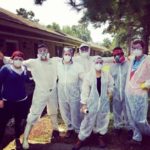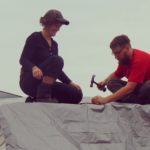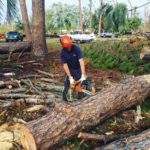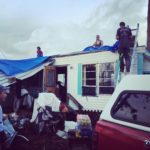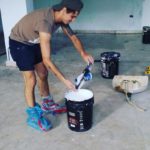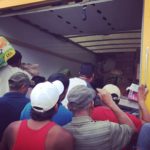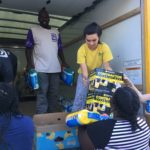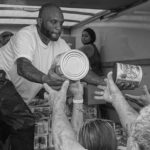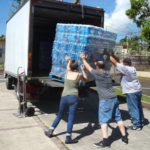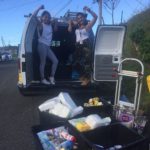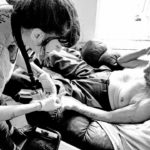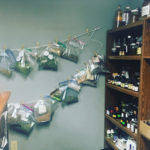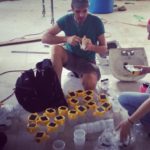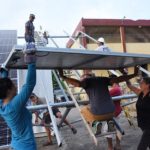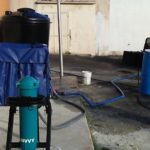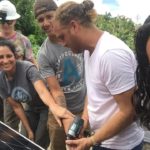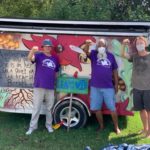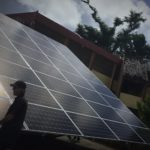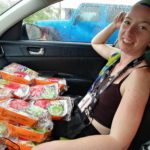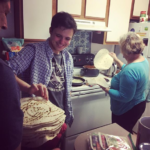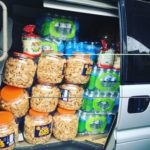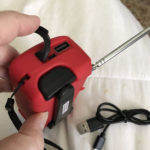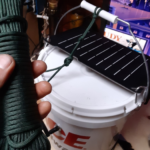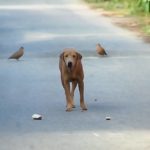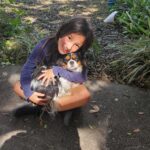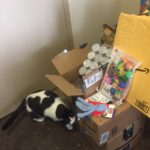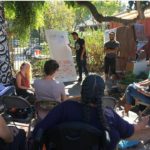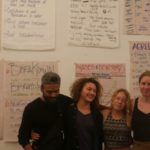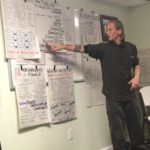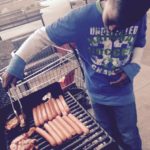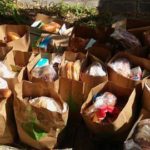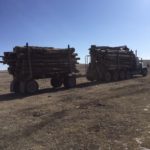In the words of the former chief of staff of the Black Panther Party, survival programs are meant to “meet people’s immediate needs while simultaneously raising their consciousness”. They are survival programs pending revolution.
Rebuilding a Better World Program
As part of our Rebuilding a Better World program, we engage in activities such as debris clean up, tarping roofs, the cleaning, repair and rebuilding of individual’s homes and community buildings such as schools and churches, and educating about and providing the necessary materials for disaster survivors to safely clean up and rebuild.
Supplies Distribution Program
With our Supplies Distribution Program, we distribute water, food, diapers, toilet paper, clothes, cleaning and other supplies directly to survivors of disaster, and set up distribution hubs where community members can acquire needed goods without paternalistic or stigmatizing rules, regulations, bureaucracy or red tape.
Wellness Program
As part of our Wellness Program, we set up wellness centers and community clinics in the wake of disasters, sending mobile teams of street medics, herbal medics, massage therapists, acupuncturists, doctors, and other medical professionals to disaster zones to provide medical aid to disaster survivors and relief workers. This includes providing psychological first aid, trauma counseling, harm reduction, peer mental health, access to life-saving medication, and other services to promote immediate survival and long-term emotional, psychological, and physical well-being.
Sustainability and Ecological Resilience Program
Let’s face it. We cannot rely on Nestle to donate water or private electric utilities to provide life-saving electricity after a disaster. With this program, we are informed by a respect for the intersectionality of all living systems, as well as community norms and practices. Here is where permaculture meets disaster response. We spread the knowledge of and access to ecologically-sound and economically viable systems designs which provide for community’s survival needs and do not exploit or pollute. We empower individuals and communities to create or regenerate diverse, resilient communities that meet immediate ecological, economic, and social needs while increasing the health of human bodies, relationships, and the ecosystems in which they are embedded. In practice, this takes the form of sustainable and autonomous infrastructure development, creating water purification systems, building photovoltaic solar arrays, and other ecologically sound response and rebuilding efforts.
Feed the People Program
From distributing groceries to mobile community kitchens, to providing culturally appropriate food, with our Feed the People Program, we share delicious, nutritious food to people impacted by disasters.
Connection Lifeline Program
Staying connected to loved ones after a disaster is a necessity for survivors. Through our Connection Lifeline Program, we help impacted individuals and communities stay connected to each other and to essential services. From mesh networks and wifi to emergency radios to utility assistance, we help survivors stay connected.
Animal Survivor Program
Dogs, cats, and other animals are also impacted by disasters. Through our animal survivor program we distribute essential supplies for animals, and assist with rescue and rehousing of animal companions.
Popular Education Program
We also are engaged in a constant learning process with communities wherein we are all teachers and all learners. As part of our Popular Education Program, we explore together subjects such as mutual aid, community organizing as disaster preparedness, how to break down barriers so people can access what they need to survive, and what does it mean to come in a good way. We also brainstorm potential disasters and cascading effects and share lessons learned, as well as share practical skills. This helps us all skill up and build community to prepare for future disasters.
Invisible Disasters Program
Just because the major disasters stop doesn’t mean we do. There are always ongoing disasters of social and economic inequality. When we are not responding to people’s self-determined needs in the context of hurricanes, tornadoes, and fires, we are applying the same Mutual Aid Disaster Relief principles to respond to the ongoing disasters of colonialism and capitalism, creating survival programs to strengthen our community’s resilience, raise people’s consciousness, and increase people’s empowerment. These survival programs have included a free laundry program, free haircuts, free breakfast program, free groceries, heating assistance on indigenous reservations during the winter, and a lot more.
